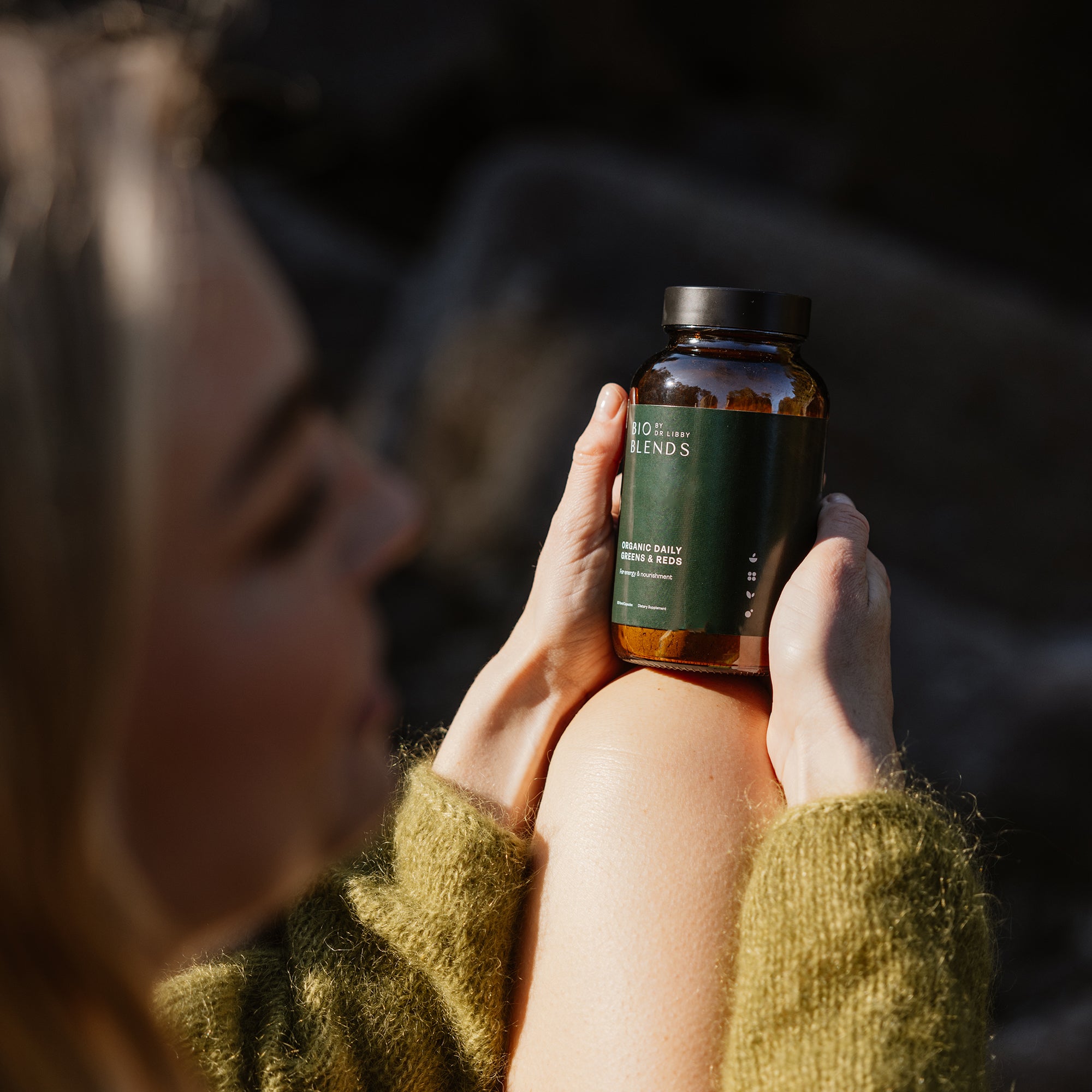
What inflammation does to your iron
There’s a delicate dance that happens in the body between iron and inflammation. When the rhythm of that relationship is off, it can ripple into every corner of our wellbeing. Over the years, I’ve met countless people who’ve been told their iron is low. They start eating “all the right things”, taking supplements and doing everything they’ve been told… yet their iron levels don’t budge. Or they start to feel worse – more bloated, more tired, more foggy – on the very supplements meant to help.
If this sounds familiar, I gently encourage you to consider what else might be going on beneath the surface. In many of these cases, the missing piece is inflammation – a hidden barrier that can quietly interfere with how your body absorbs and uses iron.
How inflammation interferes with iron
When the body experiences inflammation – whether from an infection, ongoing stress, digestive issues, too much alcohol, a long term, poor quality way of eating, or a chronic condition – one of the ways it responds is by altering iron metabolism. This is part of your innate immune response: the body’s way of trying to limit access to iron, a nutrient that bacteria and other pathogens also need to thrive. To do this, it ramps up production of a liver-derived hormone called hepcidin. Hepcidin essentially locks iron inside cells, making it unavailable for use. It also reduces our capacity for absorbing any iron that we consume. This means that even if you’re eating iron-rich foods or taking supplements, the iron absorption can get bypassed or the iron trapped and not released into circulation – which can leave you feeling flat even when your intake seems adequate.
It’s a clever defence mechanism by the body, but it becomes a problem when inflammation is persistent or chronic. Because in these cases, iron absorption continues to be blocked – and your energy, mood, metabolism and cognitive function can all take a hit.
When iron supplementation adds fuel to the fire
Now here’s the tricky part. In an effort to restore iron, many people are given high-dose supplements. These are often made with forms like ferrous sulfate, a synthetic version of iron that can end up exposing gut cells to excessive amounts of what’s called “free iron”, which is highly inflammatory. High dose supplements can increase iron levels in the blood (they don’t for everyone), it’s just that they often do so at a cost. This is because free, unbound iron (the iron your gut is exposed to once a supplement like this is digested) can act like a spark in the system – driving the formation of reactive oxygen species (free radicals) that further inflame the gut lining and impair absorption. And if your digestive system is already a little sensitive or inflamed (which, for many people, it is), this can make things worse.
It’s a frustrating cycle: low iron leads to supplementation… old school versions of which trigger inflammation… which blocks iron absorption. And so the deficiency persists.
Breaking the cycle
So what can we do? The first step is to consider the state of the gut and the whole body. Are there underlying sources of inflammation that need to be addressed? Things like gut dysbiosis, persistent stress, food sensitivities, or other chronic conditions? If so, calming these fires may be just as important as replenishing iron itself.
Secondly, we need to be mindful of the form of iron used. Not all supplements are created equal. Some are absorbed gently and without reactivity, while others can be abrasive to the digestive lining. One of the reasons I created Iconic Iron is because I wanted people to have access to an option that doesn’t inflame the gut or trigger that frustrating cycle. Ferritin-iron – the form we use sourced from organic peas – is absorbed through a different, more protective pathway that doesn’t drive inflammation.
The bigger picture
Iron isn’t just about energy – it’s about how well your body can function, think, and repair. And inflammation isn’t always a dramatic flare-up. Sometimes it’s a slow, smouldering undercurrent that goes unaddressed for years. If you’ve been struggling with low iron and nothing seems to work, it’s worth zooming out to see the whole picture. Because sometimes, the key to restoring your iron isn’t more iron – it’s creating the internal environment that allows your body to absorb and use it or switching to a different supplement that side steps all of the usual absorption barriers.




